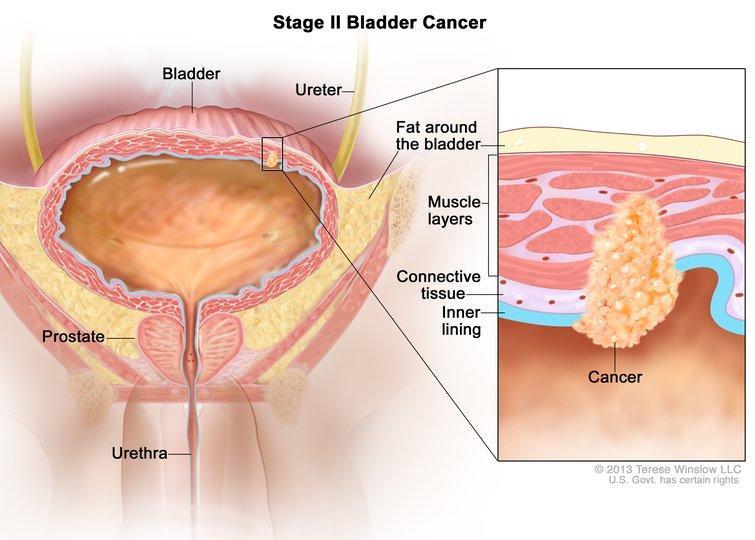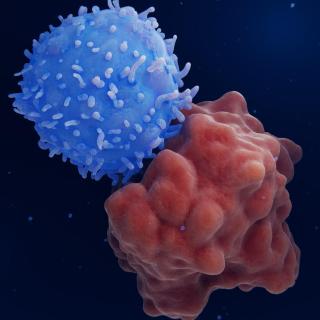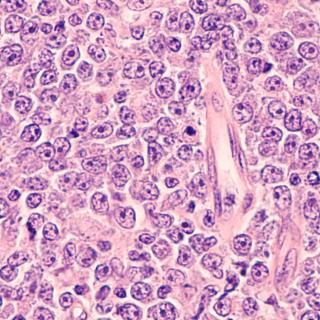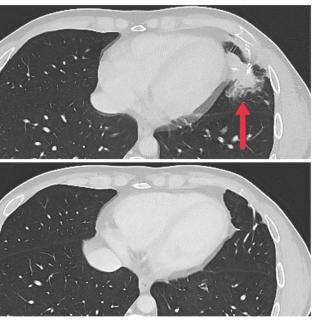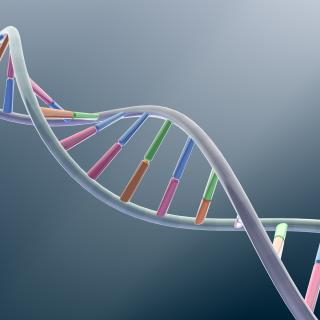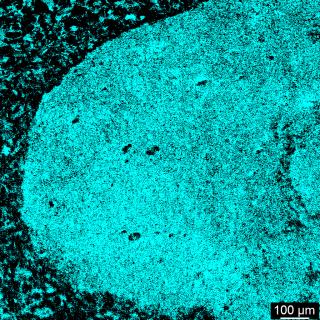Our Discoveries
Immunotherapy after surgery helps people with high-risk bladder cancer live cancer-free longer
Results from a large CCR clinical trial show that treatment with an immunotherapy drug may nearly double the length of time people with high-risk, muscle-invasive bladder cancer are cancer-free following surgical removal of the bladder. Researchers led by Andrea B. Apolo, M.D., Senior Investigator in the Genitourinary Malignancies Branch, found that postsurgical treatment with pembrolizumab (Keytruda), which is approved by the Food and Drug Administration (FDA) for treating at least 18 different cancers, was superior compared with observation.
Read MoreNIH study links neighborhood environment to prostate cancer risk in men with West African genetic ancestry
CCR researchers led by Stefan Ambs, Ph.D., M.P.H., Senior Investigator in the Laboratory of Human Carcinogenesis, found that West African genetic ancestry was associated with increased prostate cancer among men living in disadvantaged neighborhoods but not among men living in more affluent neighborhoods. The findings suggest that neighborhood environment may play a role in determining how genetic ancestry influences prostate cancer risk.
Read MoreUnderstanding the Risk of Second Cancers After CAR T-Cell Therapy
Two recent reports in the New England Journal of Medicine are seeking to determine if there may be a causal link between CAR T-cell treatment and second cancers. In this Q&A, Stephanie L. Goff, M.D., Senior Research Physician in the Surgery Branch, discusses the findings and what this issue may mean in general for patients and this area of research.
Read MoreDietary glutamine may be linked to B-cell lymphomas in abdominal lymph nodes
Study provides evidence for different anatomic locations being linked to different biology in lymphoma.
Read MoreTechnique targeting cell marker boosts treatment options for B-cell lymphomas
Researchers uncovered the mechanisms behind a drug treatment for diffuse large B-cell lymphoma (DLBCL). The findings help clarify why certain patients respond well to the treatment, while others do not.
Read MoreNew immunotherapy approach shows potential in some people with metastatic solid tumors, NIH researchers say
Early findings from a small clinical trial provide evidence that a new cellular immunotherapy approach may be effective in treating metastatic colorectal cancer. In the trial, researchers led by Steven A. Rosenberg, M.D., Ph.D., Chief of the Surgery Branch, genetically engineered lymphocytes (a type of white blood cell) from each patient to produce receptors that recognize and attack their specific cancer cells. The personalized immunotherapy shrank tumors in several patients and was able to keep the tumors from regrowing for up to 7 months.
Read MoreRepairing DNA that breaks during replication
DNA replication can generate double-strand DNA breaks. CCR scientists clarify how these breaks form and how cells repair the potentially catastrophic damage.
Read MoreArtificial intelligence model analyzes tumor images to predict patients’ response to different cancer therapies
Understanding the genetic makeup of a tumor can help doctors recommend the best treatment option for their patients, but molecular sequencing is costly and not accessible to everyone. A new artificial intelligence model called ENLIGHT DEEP-PT could help overcome these challenges.
Read MoreResearchers use artificial intelligence to tease apart subtypes of glioma
A new machine learning algorithm can dig deep into spectral data of brain tumor tissue to reveal genetic mutations, DNA methylation and even the fat content of gliomas. This research advance could help scientists better classify — and one day better treat — brain cancer.
Read MoreNIH scientists develop AI tool to predict how cancer patients will respond to immunotherapy
In a proof-of-concept study, CCR researchers developed an artificial intelligence (AI) tool that uses routine clinical data to predict whether someone’s cancer will respond to immune checkpoint inhibitors. The machine-learning model may help doctors determine if these immunotherapy drugs are effective for treating a patient’s cancer. The study, published June 3, 2024, in Nature Cancer, was led by Eytan Ruppin, M.D., Ph.D., Chief of the Cancer Data Science Laboratory, and collaborators at Memorial Sloan Kettering Cancer Center in New York.
Read More